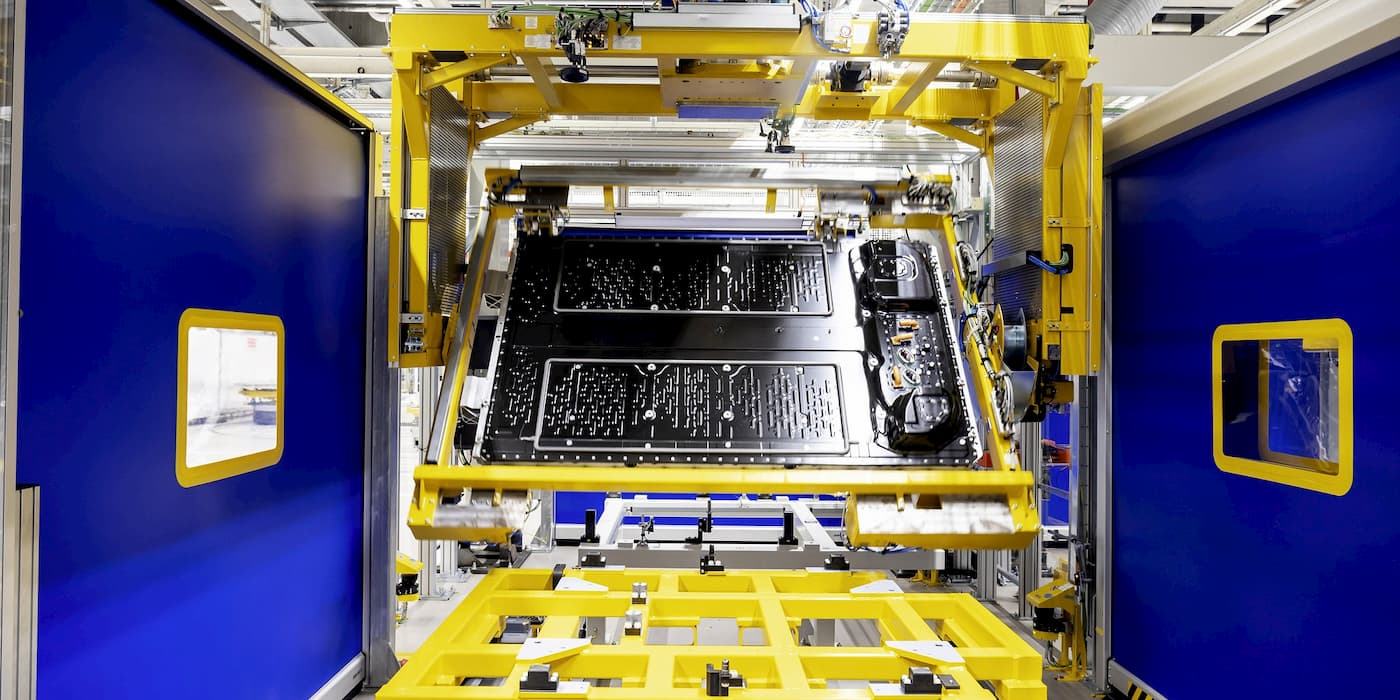US increases EV battery recycling capacity with new AL facility processing up to 10K tonnes annually

As consumer preference continues trending toward electric vehicles, automakers are moving swiftly to lock up critical battery materials. With battery recycling technology advancing, it will help ease the transition, unlocking the true potential of the sustainability behind electric vehicles. A new EV battery recycling plant in Alabama from Li-Cycle can process up to 10,000 tonnes, enough for about 20,000 EVs per year, helping the US venture toward a zero-emission economy.
The post US increases EV battery recycling capacity with new AL facility processing up to 10K tonnes annually appeared first on Electrek.
As consumer preference continues trending toward electric vehicles, automakers are moving swiftly to lock up critical battery materials. With battery recycling technology advancing, it will help ease the transition, unlocking the true potential of the sustainability behind electric vehicles. A new EV battery recycling plant in Alabama from Li-Cycle can process up to 10,000 tonnes, enough for about 20,000 EVs per year, helping the US venture toward a zero-emission economy.
Li-Cycle is on a mission to “create an environmentally sustainable supply of critical battery materials” to support the auto industry’s transition to electric vehicles.
The company’s Spoke & Hub Technologies uses a unique hydrometallurgical processing method. The method offers an alternative to the pyrometallurgical method, which Li-Cycle believes can lower costs while saving energy.
Li-Cycle’s processing method is specifically designed as a two-part system recycling battery manufacturing scrap and turns end-of-life batteries into a black mass.
The black mass is then processed and used to generate battery minerals such as nickel sulfate, lithium carbonate, and cobalt sulfate, three of the most critical factors for EV batteries. According to the battery recycling company, li-Cycle believes its method will enable up to a 95% efficiency rate compared to the industry average of 50%.
Perhaps, and more importantly, Li-Cycle’s processing method creates a safe way of recycling lithium-ion batteries without any landfill waste while reducing carbon emissions.
Li-Cycle has three battery recycling plants already in North America, two in the US (New York, Arizona), and one in Ontario. The fourth and latest in Tuscaloosa, Alabama, will increase processing capacity to 30,000 tonnes a year.
Li-Cycle increases US battery recycling capacity with new AL facility
Located in the heart of the EV manufacturing boom in Alabama, Li-Cycle’s third US EV battery recycling plant has officially come online.
The new Alabama lithium-ion recycling facility is over 100,000 square feet and hosts approximately another 120,000 square feet in warehouse space. With the capacity to process 10,000 tonnes of EV battery materials annually, the company can now recycle 60,000 EV batteries across North America.
CEO of Li-Cycle, Ajay Kochar, explains how the new facility can contribute to the growing demand for EVs, stating:
This facility enhances our ability to support the recycling needs of our diverse and growing customer base in North America to ensure lithium-ion battery material is recycled in an environmentally friendly and safe manner. Li-Cycle is creating an essential domestic supply of recycled material to support EV production and assist automakers in meeting their domestic production content requirements.
By the end of next year, Li-Cycle forecasts to have around 65,000 tonnes of EV battery material recycling capacity across its network.
The Alabama EV battery recycling plant is strategically placed in the Southeastern US, one of the biggest beneficiaries of the booming EV market, as it has already brought $33 billion to the region.
Electrek’s Take
Several massive climate bills passed since the beginning of 2021 are already working as designed, boosting EV adoption. EV share in the US hit another record this past quarter, accounting for 5.6% of total vehicle sales.
As these numbers are only expected to accelerate in the next few years, battery recycling will be critical in building a sustainable transportation sector.
With the US planning to achieve a 50% EV share of overall car sales by 2030, recycling technology like by Li-Cycle will ensure we have the battery minerals to get there.
FTC: We use income earning auto affiliate links. More.
Subscribe to Electrek on YouTube for exclusive videos and subscribe to the podcast.



